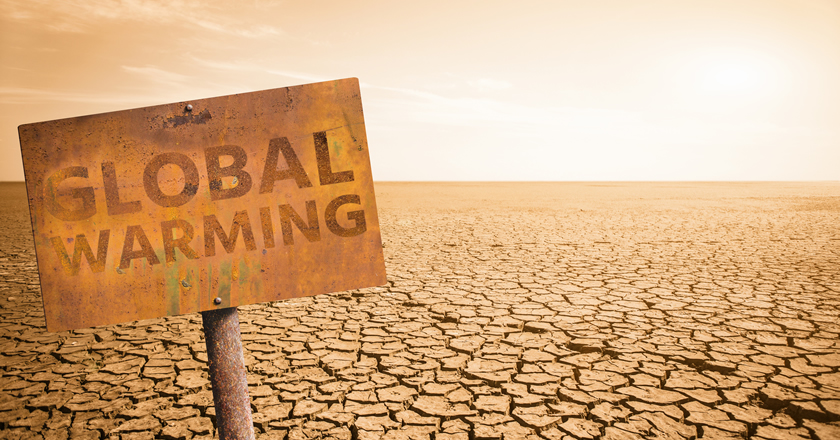Effects of COVID-19 on climate change issues

As you know, efforts to control COVID-19 are trade-offs with economic activities. Due to reduced consumption activities, including those in food services and leisure, and reduced various industrial activities as well as people’s self-restraint in moving, a decrease in the emissions of greenhouse gases, especially carbon dioxide (CO2), is given as a favorable influence on climate change issues. There is an estimate that CO2 emissions fell by 25% from the previous month in February 2020 in China.
Even after COVID-19 is contained, more constant favorable influences will be contemplated such as teleworking being widely adopted, and a simple life symbolized by minimum life will be preferred as lifestyles change.
On the other hand, there are negative influences. While efforts are made to control the infectious disease, international conferences are postponed or held online. In fact, though the Conference of the Parties (COP) to the United Nations Framework Convention on Climate Change (UNFCCC) is held annually, the 26th meeting was postponed from 2020 to 2021. There is a possibility that international discussions will be delayed by that postponement. COP includes official meetings on various subjects in addition to plenary meetings. In parallel, there are meetings among specific group of countries having a close interest to decide a direction of the group before official meetings. I imagine that it would be extremely difficult if all of those meetings were held online. It is obvious that the highest priority is currently given to combating COVID-19. Under those circumstances, people may have lost their capacity to eagerly listen to Ms. Greta Thunberg raising the problems and the voices of the younger generation about global warming.
After COVID-19 is contained, carbon dioxide emissions will increase on the rebound like after the 2008 financial crisis. Infrastructure projects will also increase as economic recovery measures.
Seeing it in this way, you can see that COVID-19 will not necessarily have a good effect on climate change issues.
Comparison between issues of COVID-19 and climate change
The phenomenon of COVID-19 can be, so to speak, compared to an acute disease, and the phenomenon of climate change to a chronic disease. A sudden disease needs quick treatment. On the other hand, if you leave a chronic disease as it is, you will be faced with a more serious problem afterward.
As you may feel, in a policy decision, public consultation and disclosure of official information are one of the important procedures for putting policy into action effectively. For the COVID-19 problem, we cannot take our time for such a thing as receiving public comment for two weeks. What is important now is expert advice and suggestions as well as decisions by policy makers. In the case of climate change, for expert examinations, a scientific organization called the Intergovernmental Panel on Climate Change (IPCC) has been established by the United Nations Environment Programme (UNEP) and the World Meteorological Organization (WMO). The IPCC conducts examinations and assessments from a scientific viewpoint but does not give prescriptions to policy. Discussions on policy are held by COP as it makes use of expertise from the IPCC. Role-sharing between them is clear (though there is a discussion about it).
Regarding COVID-19 issues, the WHO plays a role as a group of experts. It also carries out awareness raising activities. I take my hat off to it for reports updated every day and remarks made by experts. The fact that expert opinions are not always right may be unavoidable to some extent since the nature of the virus with which we are faced (e.g., infectiousness and immune mechanisms) is different from that of previous diseases.
Another thing that can be said in terms of comparison is that the COVID-19 will decline sometime (though it is not certain when that will be) while global warming cannot be fully relieved unless decarbonization makes progress as CO2 concentration has been growing steadily for years.
Other connections between COVID-19 and environmental issues
As you know, there is a study showing that the COVID-19 originates from bats. Regarding previous infectious diseases, there is a study showing that HIV originates from primates. So, the fact that a new infectious disease to humans originates from wildlife makes me consider a connection between humans and natural environments and wildlife. The fact that an unknown natural substance may be a useful constituent of a medicine is given as one of the values of biodiversity. Conversely, if extended to viruses, then it stands to reason that there would be something harmful to humans.
Another environmental issue related to it is the issue of waste. Disposable masks are mostly plastic products. I sometimes see discarded (or dropped?) masks by the roadside. They ought to be appropriately disposed of like disposable plastic shopping bags. The notices of the Ministry of the Environment state that in stay treatment or home treatment a person shall be conscious of not touching waste directly, sealing a trash bag by tying it firmly, and washing his/her hands after he/she discards waste in putting out waste and that it is desirable to incinerate the waste together with those reused as resources normally, such as plastic bottles, without opening a trash bag to separate waste (in the process of waste disposal). The latter is instructions for persons in charge of waste disposal and management, and consideration for those persons’ health maintenance is also important. Cooperation in other sectors than the medical sector and the good offices of people in those sectors are essential to our social life. Waste disposal and management are an example of them.
How to consider risk management
When we consider minimizing a risk, what problems will we encounter? It may be that we allow a risk to an extent as there is another element. It includes the risk of the spread of infection and the risk of economic failure; the risk and convenience of using a car or plane; the right or wrong of nuclear power generation; and the convenience of using plastic products (prevention of damage to food and energy saving through lighter bags; the Danish Ministry of the Environment and Food reported that when a cotton eco bag is used 7,100 times (or a recycled PET bag is used 84 times) instead of a disposable plastic shopping bag, the environmental load will be at the same level as that of a disposable plastic bag). Through (a group of) users making a decision on how to balance, society is formed. In the case of a policy, politicians will decide it reflecting our opinions. At an individual level, if a person becomes a person infected with COVID-19 but without a symptom, the fact that the person should consider the risk which he/she will cause to the people around him/her (though he/she is not aware of the infection) may be a characteristic of the issues.
Conclusion
Regarding COVID-19 issues, each person may have clarified what he/she should do from his/her standpoint. Those issues give us an opportunity to consider many things about how people in different positions should cooperate in and confront the issues. In my personal experience, I sometimes feel that an experience that I did not desire at all leads to my growth when I looked back on it later. As we hope that a day when we can talk about COVID-19 issues and environmental ones in such a way will come, let us contribute to stronger cooperation in various positions without losing the viewpoint of governance through the Graduate School of Governance Studies and think and act so that we can adapt ourselves to new social systems after COVID-19.
* Updated in May 2021 based on the Japanese version of an article (made public in June 2020)
* The contents of articles on Meiji.net are based on the personal ideas and opinions of the author and do not indicate the official opinion of Meiji University.
* I work to achieve SDGs related to the educational and research themes that I am currently engaged in.
Information noted in the articles and videos, such as positions and affiliations, are current at the time of production.


